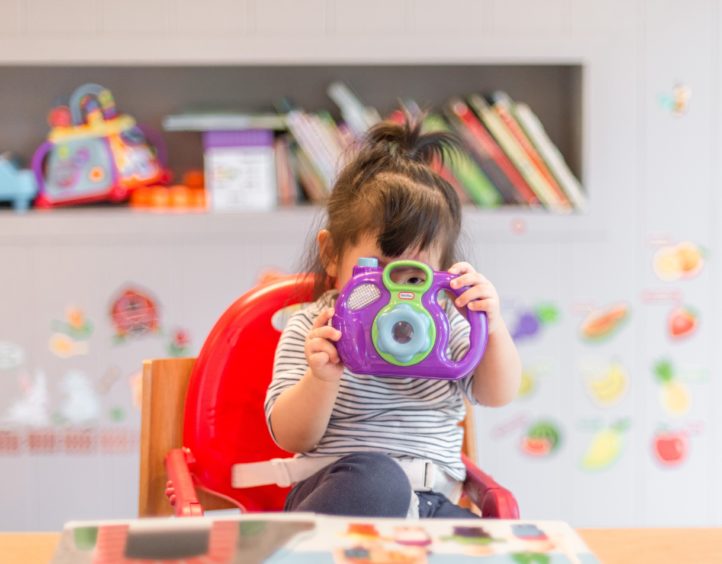PRETEND PLAY OR SYMBOLIC PLAY
WHAT IS SYMBOLIC PLAY?
2-3 years old: children imitate what they see
From the age of 2, children play games based on imitation, role play and pretending. These echo what the children have seen and heard. They mostly imitate everyday gestures. They pretend to make their dolls drink, to change teddy bears, to make phone calls, etc. Young children mostly imitate their Mum or Dad, because parents are the first role models they have. At this age, they will imitate either the same or opposite sex parent. These imitation games allow children to understand others, envisage themselves in an adult world, replicate everyday gestures (eating, doing their hair, etc.) and develop their language skills. These role plays allow them to understand life experiences in their own special way.
3 years old: imitation as a form of play to support personality development
The processes involved in imitation games become more complex among children aged over 3. But we’re focusing on symbolic games. Children invent imaginary scenarios: this is the age where children start to say to themselves “it seems like…” or pretend to do certain things. Their games become more open and others can join in. Role play becomes a way for children to develop by envisaging themselves in various adult roles: the doctor, the shopkeeper, the father, etc. It also helps them manage situations and conflicts. For example, your child will defuse an unpleasant situation by acting out a conflict they have had with you. This allows them to manage their frustration. These games also make it easier for children to differentiate between themselves and others. These symbolic games also teach them how to differentiate between boys and girls and social roles.
Symbolic games facilitate a child’s development because they allow them to develop:
- Their autonomy and ability to take the initiative.
- Fine and gross motor skills: dexterity and gesture coordination, such as putting a spoon in a container or baby’s mouth, undressing a doll, putting the lid on things, moving objects, moving around in spaces.
- Cognitive skills: language development, comprehension, decentring, imitation, imagination, conceptualisation of inside/outside, etc.
- Social skills: understanding social roles, sharing materials, complying in certain situations, listening, taking into account others’ points of view.
- Internalising the rules and codes that govern the world in which they live.
- Emotional skills: expression of feelings and self-esteem.
FREE PLAY
Give your child free-play time when there are no scheduled activities. It is in these moments, when the child has enough time, that their imagination will serve them best to invent new games. Give them multi-purpose materials (cardboard boxes, paper towel rolls, sheets, etc.) to let their imagination run wild (e.g. they will make a tent out of a sheet, a house or pirate ship out of a carboard box, etc.). Let them create their own world from these objects.
IMAGINATION
Give your child time to develop their game and explore the various roles in a particular scenario. They will sometimes play the same game repeatedly for a few days. You can also fill a trunk with costumes and props to inspire your child's play. If necessary, offer new ideas to get the game going again. You may also want to ask them questions to help them become more autonomous.
FOR EXAMPLE
“What could you build your boat with?,” “Do you want to ask your cuddly toys to play your game?,” and “What roles could they play?”
But don’t take control of their play. Over time, your child will create their own, more varied scenarios, drawing on every ounce of their creativity and imagination. If your child is younger or less imaginative, suggest more specific costume items (e.g., an apron, cap or belt). These props will help them stay focused on their game and keep their mind on their role.
Remember:
- Symbolic play is very important to children’s development.
- To carry out pretend play, toddlers need to have periods of free time during which they can invent play scenarios.
- If you give your child ideas to help inspire their play, don’t take control.



